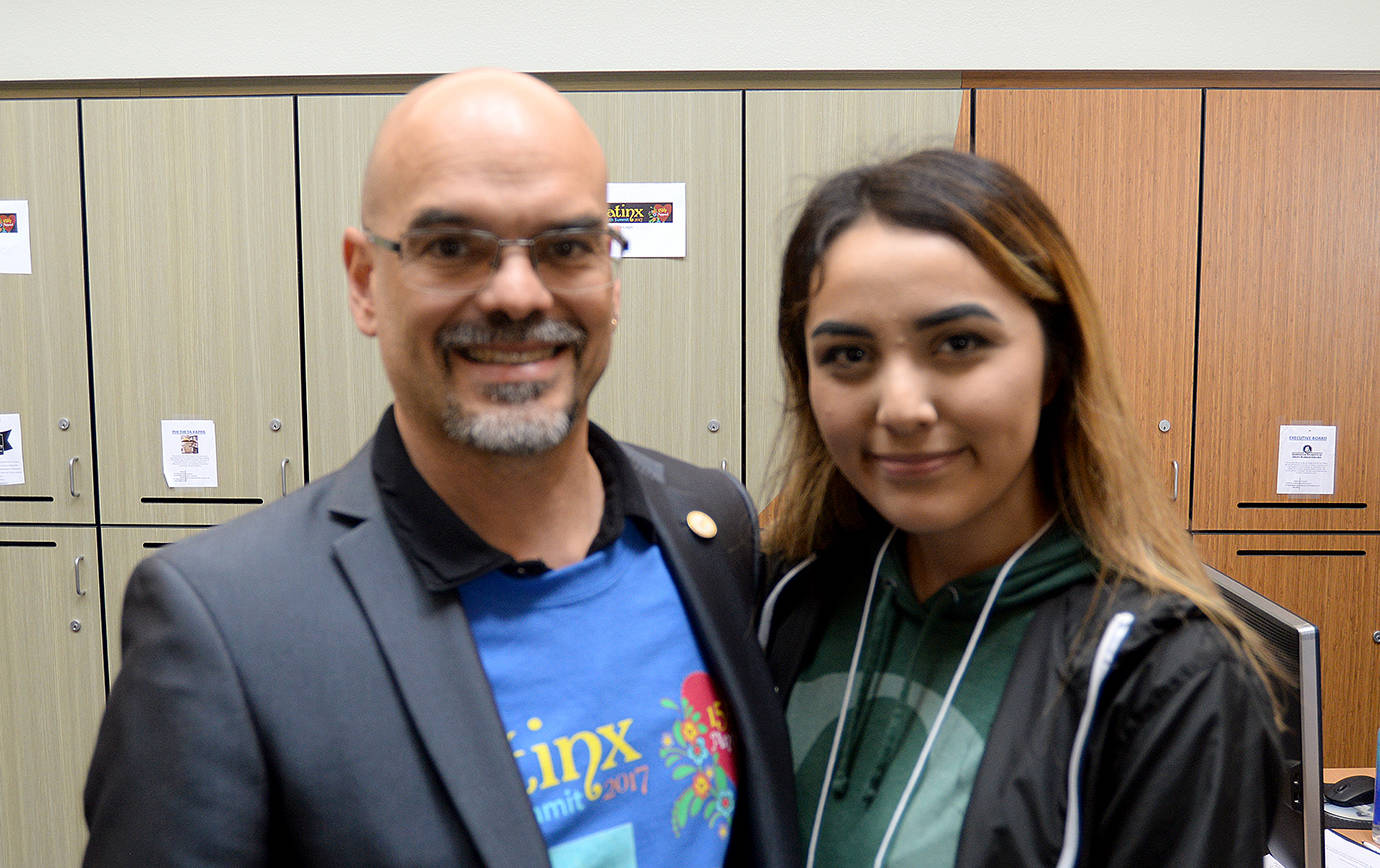Hundreds of young people from Thurston, Lewis, Mason, Pacific and Grays Harbor counties attended the Latinx Youth Summit at Grays Harbor College Friday.
Neysa Alaniz was one of them. The 17-year old from Aberdeen credits the Latinx gathering with teaching her the importance of taking her education more seriously.
“This is my third year, and you learn something new every year,” she said. “Latinx persuaded me to go to school and work toward a criminal justice degree.” Alaniz has a sister who attends Grays Harbor College and said, “My mom dropped out of school after the sixth grade. My dad never made it past the third grade.”
The lessons she’s learned through Latinx and the support of the many like her have allowed Alaniz to buckle down and take school seriously to reach her goal of becoming a detective, she said.
Organizer Bill Fishburn of the Hispanic Roundtable said the annual event started in 2001 and this is the first time Grays Harbor College has hosted. The Hispanic Roundtable’s mission is to “strengthen the Latino community through partnerships, education, community building and cultural representation.” Latinx is hosted by South Puget Sound Community College, Centralia College, The Evergreen State College, Grays Harbor College and St. Martin’s University, alternating annually.
A group of young women from Shelton said they attended primarily to check out colleges — Washington, Washington State and Central were among the many colleges that had booths at the event — and also to connect with their cultural heritage.
The turnout was huge, with estimates of about 500 people attending. Fishburn said this was the first year he had to shut down registration early because 565 young people signed up for the event, which is designed to handle more like 400 students.
There were seminars in various rooms in the Gene Schermer Building that covered everything from financial aid to social responsibilities.
One course, led by Linda Guijosa, was called CPR for Relationships. CPR in this case stands for Communication, Pleasure and Response. Guijosa said the “pleasure” portion of the formula throws some people off because they think it’s about sex. She said part of the course is teaching young people about pleasurable activities they can share with a partner that have nothing to do with sex.
The keynote speaker was Luis Ortega, who Fishburn described as a “motivational public speaker.”


